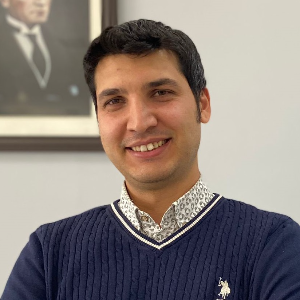Title : Experimental investigation of emission and performance values of methanol and gasoline mixtures in an RCCI diesel engine
Abstract:
With the increase in population in the world and the development of technology, the need for energy is increasing more than ever. Today, we still meet the majority of our energy needs from oil. NOX, CO and HC emissions released from internal combustion engines have been largely reduced by the use of catalytic convector-style exhaust gas purification systems, but these systems have not yet been able to reduce harmful emissions to the desired levels. One of the applications that increases engine efficiency while reducing emissions is the RCCI method. In this study, the RCCI method was applied by adding methanol and gasoline to a Lombardini LDW 1003 brand 3-cylinder, 4-stroke diesel engine. Gasoline and methanol applied as low reactivity fuel (LRF), the timing and injection amount were adjusted with the information received from the crankshaft with the help of a PLC program. The studies were carried out with the engine at full load, at 1500, 2000, 2500 and 3000 rpm, with LFR fuel (gasoline-methanol) and 3 different injection timings (10, 20, 30 CA). In the experiments, in-cylinder pressure, power, torque, exhaust temperature, fuel consumption and NOx, HC, O2, CO and CO2 exhaust emission values ??were taken. According to the test results, fuel consumption and exhaust temperatures decreased in parallel with the increase in the amount of LRF fuel in both gasoline and methanol. While the highest torque and power values were obtained at methanol 30 CA and, decreased in NOX values.
Keywords: RCCI, Methanol, Gasoline, Emission, Injection timing



